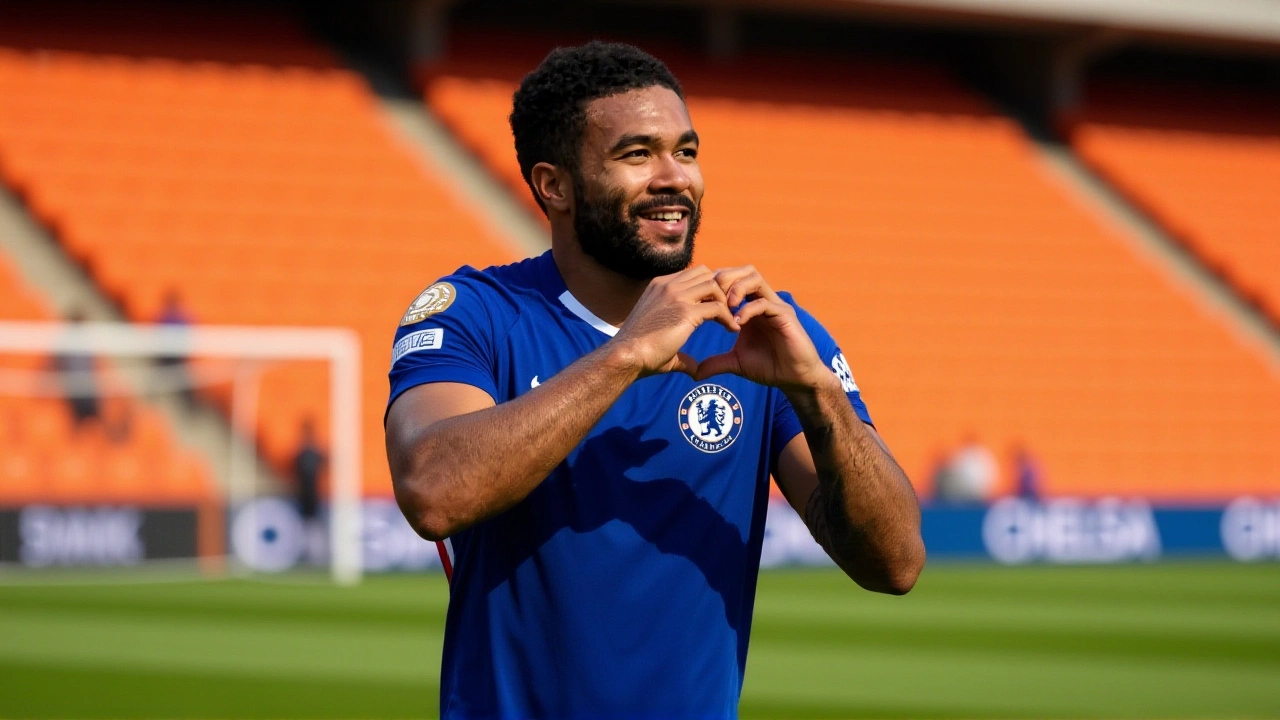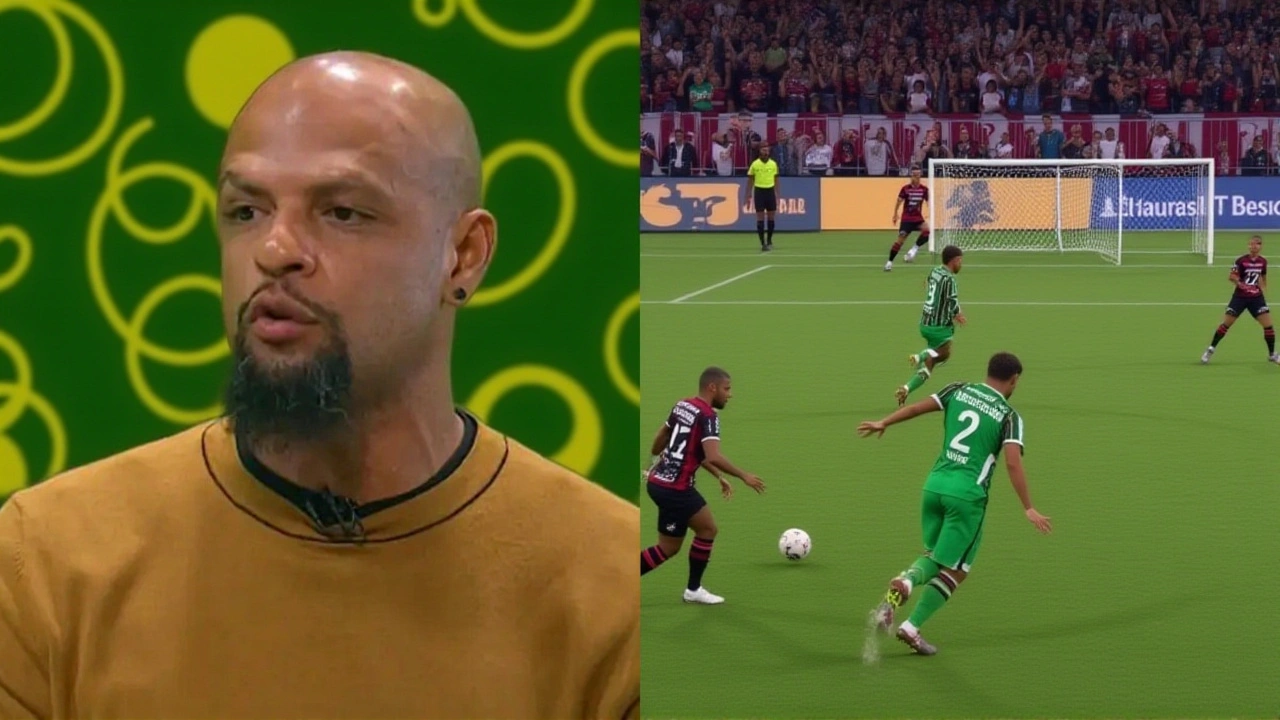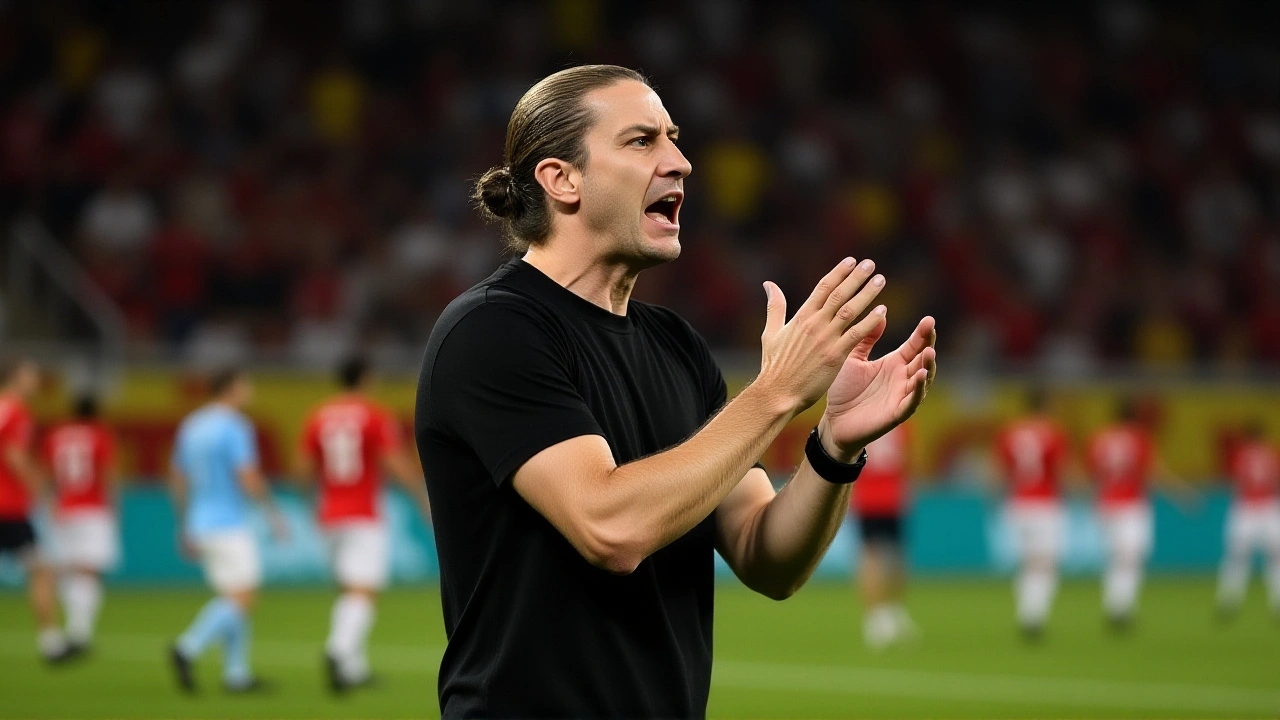Seven goals in four games. That’s not a fluke — it’s a collapse. The Flamengo, still top of the Campeonato Brasileiro Série A 2025 with 71 points, is suddenly looking vulnerable in ways no one saw coming. After holding the league’s best defense through 30 matches — just 16 goals conceded — the Flamengo has unraveled in the final stretch, letting in seven goals between November 10 and 19, 2025. The result? They’ve been overtaken by Cruzeiro (22 goals conceded) as the league’s stingiest backline. And with four critical matches left before the Copa Libertadores da América 2025 final, this isn’t just a bad run — it’s a crisis.
From Impenetrable to Exposed
Through the first 30 rounds, Flamengo’s defense was the envy of Brazil. A compact, disciplined unit anchored by Danilo Araújo and Léo Pereira, they allowed just 0.53 goals per game. Then came the perfect storm: a packed schedule, player fatigue, and tactical fatigue. In the last four matches alone, they conceded: 1-0 to Fortaleza on November 10, 2-3 to Santos on November 13, 1-0 to Racing on November 16, and 1-2 to Fluminense on November 19 — the latter a brutal Clássico das Laranjeiras at the Estádio das Laranjeiras in Rio.The numbers tell a grim story. Average goals conceded per game over those four matches: 1.75. Total goals conceded this season: 23. Their goal difference, once +32, is now +19. And they’ve slipped to seventh in defensive rankings among 20 teams. The worst part? It’s not just quantity — it’s pattern. Seven of the 23 goals conceded this season have come from set pieces. As coach Filipe Luís Scolfaro admitted after the Santos win, “We’re not organizing well on corners and free kicks. We know it. But with games every 2.8 days since October, there’s no time to drill fundamentals.”
Player Exhaustion and Tactical Chaos
The human cost is just as alarming. Danilo Araújo, 30, played against Santos on the 13th, then flew straight to São Paulo for the Racing match on the 16th — and started both. “I’ve never played two games in 24 hours,” he said after the Fluminense loss. “I came straight from the airport. It’s not an excuse. It’s reality. We’re all stretched thin.”His partner in central defense, Léo Pereira, has played every minute of the last 32 games. Meanwhile, backup Léo Ortiz, 28, has been thrown into three of the last seven matches, with mixed results. In the four games with Danilo and Léo Pereira, Flamengo conceded five goals. In the three with Léo Pereira and Ortiz? Two more. The inconsistency isn’t just about personnel — it’s about system. The team switches between a flat back four and a slightly higher line depending on the opponent, but without consistent communication, the gaps widen.
Even Alex Sandro, the 29-year-old left-back, has been pulled into defensive emergencies. “It’s not just the backline,” he told reporters. “We’re all involved. But when you’re tired, you don’t recover mentally. You start thinking about the next game instead of the next pass.”

Why This Matters Beyond the Table
Flamengo isn’t just fighting for a league title — they’re preparing for the Copa Libertadores da América 2025 final. The continental crown is their ultimate goal. But how do you defend against Argentina’s River Plate or Colombia’s Atlético Nacional when you’re conceding from corners against Racing? The pressure is mounting. The team’s midfield — once a fortress of control — is now struggling to recover possession. The backline is reacting, not anticipating.And the calendar doesn’t care. After facing Red Bull Bragantino on November 22 at the Maracanã, they travel to Recife for a tough clash with Sport Recife on the 26th. Then, back home for a rematch with Fluminense on the 30th — a game that could decide the title — followed by a season-defining visit to Belo Horizonte to face Atlético Mineiro on December 7.

What’s Next? The Clock Is Ticking
The club’s medical staff is now working overtime. Players are getting individual recovery protocols — cold baths, sleep monitoring, even psychological check-ins. But the real solution? Rest. And there isn’t any. The FIFA international window in late November has already drained squad depth. Backup defenders like Thiago Maia and Pedro Henrique are inexperienced in high-stakes matches. Scolfaro’s options are shrinking.Analysts say the solution isn’t tactical overhauls — it’s discipline. “They need to stop trying to be heroes,” said former Brazil defender Lúcio in a recent interview. “When you’re tired, you hold your shape. You don’t chase the ball. You don’t gamble. You trust the system. Flamengo used to do that. Now they’re gambling every time.”
The irony? Flamengo’s attack is still lethal. With Gabriel Barbosa scoring in three of the last four games, they’ve kept winning — barely. But in football, you can’t win championships with luck. You need resilience. And right now, the defense is anything but.
Frequently Asked Questions
How has Flamengo’s defensive record changed this season?
Through 30 matches, Flamengo had the league’s best defense with only 16 goals conceded. In the last four games alone, they’ve allowed seven goals, raising their total to 23 — the most they’ve conceded in any 34-game stretch since 2019. This drop has cost them the top defensive ranking, now held by Cruzeiro with 22 goals conceded.
Why is set-piece defense a major issue for Flamengo?
According to data from Noticiando MS, Flamengo has conceded seven goals from free kicks over the past five seasons. In 2025, three of the seven goals in the last four games came from set pieces. Coach Filipe Luís Scolfaro admits the team lacks time to practice positioning due to fixture congestion, making them vulnerable to well-rehearsed opponents.
Is Danilo Araújo’s fatigue affecting the team’s performance?
Yes. Danilo played against Santos on November 13, then flew to São Paulo to face Racing on November 16 — starting both games. He described arriving at the stadium “running from the airport.” His physical and mental exhaustion was visible in the Fluminense match, where he missed two critical clearances. With no reliable backup, his fatigue is directly impacting the backline’s stability.
What are Flamengo’s upcoming fixtures, and how do they impact their title chances?
Flamengo faces Red Bull Bragantino (Nov 22), Sport Recife (Nov 26), Fluminense (Nov 30), and Atlético Mineiro (Dec 7). All are top-half teams with strong attacks. A single loss in this stretch could open the door for Palmeiras, who sit just two points behind. With the Libertadores final looming, every point is critical — but so is player preservation.
Can Flamengo still win the Brazilian Championship despite this crisis?
They can — but only if they stop conceding from poor organization. Their attack is still elite, and they’ve won all four games despite the goals conceded. But in tight title races, one defensive lapse can cost you. If they concede more than 1.5 goals per game in the final stretch, their lead will evaporate — even if they win every match.
How does this affect Flamengo’s chances in the Copa Libertadores final?
It’s a red flag. The Libertadores final will demand defensive discipline against elite attackers — think River Plate’s physicality or Nacional’s counterattacks. If Flamengo can’t fix their set-piece and transition issues now, they’ll be exposed in a two-legged final. Winning the league means nothing if they’re humiliated on the continental stage.

Ambika Dhal
November 24, 2025 AT 01:46This isn't just fatigue - it's systemic decay. Flamengo's coaching staff has been lazy for years, relying on talent instead of structure. They think stars will win games, but stars collapse under pressure when the system is broken. No amount of cold baths or sleep trackers fixes a lack of discipline. The defense isn't tired - it's untrained. And now they're paying for it with the league title and possibly the Libertadores. Sad to see a giant fall like this - not from bad luck, but from arrogance.
They could've fixed this in July. They didn't. Now it's too late.
Vaneet Goyal
November 25, 2025 AT 13:45Seven goals in four games? That’s not a collapse. That’s a mathematical inevitability. They played 30 games without conceding much because they had a favorable schedule, rested players, and weaker opponents. The last four? All top-half teams with elite attackers. The real issue isn’t Danilo’s fatigue - it’s the lack of rotation policy. Scolfaro’s been stubborn. He’s treating the squad like a two-man unit. That’s not coaching. That’s ego.
Amita Sinha
November 26, 2025 AT 09:37Okay but like… why are we even surprised? 😒 Flamengo’s been coasting since 2022. They won because they had Gabriel Barbosa and a bunch of guys who just showed up. Now the magic’s gone and suddenly everyone’s acting shocked? I mean… they didn’t even bother drafting decent backups. Léo Ortiz? Really? That’s not a crisis - that’s a budget cut. And now they’re gonna cry about set pieces? Bro. 😴
Bhavesh Makwana
November 27, 2025 AT 23:17I think we’re missing the bigger picture here. Flamengo’s not just a football team - they’re a cultural institution. This collapse isn’t just about tactics or fatigue. It’s about identity. For years, they played with heart, with pride, with a kind of Brazilian soul. Now? They’re playing like robots trying to survive. The players aren’t broken - they’re exhausted from carrying a legacy no one else wants to share. Maybe the solution isn’t more drills. Maybe it’s giving them space to breathe. To remember why they fell in love with the game in the first place.
Football isn’t just about wins. It’s about joy. And right now, that joy is buried under pressure.
Vidushi Wahal
November 28, 2025 AT 10:21The set-piece issue is the most concerning. Not because it’s new - but because it’s been ignored for years. Data shows they’ve conceded 21 set-piece goals since 2020. That’s not bad luck. That’s negligence. Coaching staff should’ve implemented a dedicated set-piece unit by 2023. They didn’t. Now they’re paying the price. Simple as that.
Narinder K
November 29, 2025 AT 14:45So let me get this straight - they conceded 7 goals in 4 games, but still won all 4? That’s not a collapse. That’s a miracle. Or a sign that Gabriel Barbosa is basically a one-man army. Maybe we should just give him a cape and call it a day.
Narayana Murthy Dasara
December 1, 2025 AT 00:02I’ve been watching Flamengo since the early 2000s. This hurts. But I also see hope. They’ve got young guys like Thiago Maia who could step up. The problem isn’t talent - it’s trust. The coaching staff needs to stop treating backups like emergency contacts. Give Ortiz 3 full games. Let him build rhythm. Let the midfield play deeper. Let Sandro rest. This isn’t about fixing the defense - it’s about rebuilding confidence. And confidence comes from consistency. Not panic.
lakshmi shyam
December 1, 2025 AT 16:31Flamengo’s entire management is a joke. They think money buys titles. It doesn’t. Discipline does. And they don’t have any. The players are tired because the club doesn’t care about them. They’re just meat on the grill. And now they’re crying about set pieces? Pathetic. Fire Scolfaro. Fire the medical staff. Fire everyone who thinks cold baths fix laziness.
Sabir Malik
December 2, 2025 AT 22:28I know it’s hard to see right now, but this might be the best thing that ever happened to Flamengo. Think about it - they’ve been coasting on reputation for years. Now they’re forced to adapt. Maybe this is the push they needed to finally build a proper rotation system. Maybe this is the moment they start investing in youth, in data, in recovery science. Yeah, they’re losing points. But they’re gaining wisdom. And wisdom lasts longer than trophies. This isn’t the end - it’s the beginning of something real. I believe in them. Not because they’re great now - but because they can become better.
Debsmita Santra
December 3, 2025 AT 13:22From a tactical analytics standpoint the issue is clear - Flamengo’s defensive line has been operating with inconsistent vertical spacing and poor lateral coverage transitions. Their high-line implementation lacks synchronization between full-backs and center-backs, especially under fatigue. The set-piece vulnerability correlates directly with low defensive cohesion metrics during dead-ball scenarios. They’ve been relying on individual athleticism rather than structured positional discipline. What’s needed is a 72-hour intensive defensive re-education camp focused on zone marking, marking responsibilities, and communication protocols - not just recovery protocols. The data doesn’t lie - their xG conceded per set piece is 0.38, the highest in the league. That’s not luck. That’s a system failure.
Vasudha Kamra
December 4, 2025 AT 19:44It’s not just about fatigue. It’s about leadership. Danilo and Léo are veterans, but no one is stepping up to organize the defense during set pieces. No one is yelling, no one is pointing. That’s not a physical problem - that’s a mental one. The team has lost its defensive captaincy. Someone needs to take responsibility. And if it’s not them, then it’s time to give the role to someone else - even if they’re 22.
Abhinav Rawat
December 5, 2025 AT 15:57There’s a philosophical angle here. Football, at its core, is about balance - between attack and defense, between rest and effort, between pride and humility. Flamengo used to embody that balance. Now they’re chasing perfection, and in doing so, they’ve lost themselves. They think winning means never losing - but true greatness is in how you fall, and how you rise. Maybe this collapse isn’t the end of their season. Maybe it’s the end of their illusion. And sometimes, illusions need to die so truth can be born.
Surbhi Kanda
December 6, 2025 AT 20:51Set pieces are a reflection of organizational failure. Period. No excuse. They’ve had six months to fix this. They didn’t. Now they’re blaming the calendar? The calendar doesn’t care about your ego. Fix the system or get out. And someone needs to tell Scolfaro that ‘we’re tired’ is not a tactical adjustment. It’s a surrender.
Sandhiya Ravi
December 6, 2025 AT 21:06I just want to say I feel for the players. They’re not robots. They’re humans. They’ve been playing nonstop since August. No one’s talking about how hard it is to focus when your body is screaming to rest. I know people want wins, but let’s not forget who’s out there risking their bodies. Maybe the real win isn’t the league - it’s them coming back healthy next year.
Alok Kumar Sharma
December 7, 2025 AT 15:55They’re done.
Tanya Bhargav
December 9, 2025 AT 09:18They’re still winning, right? So maybe the defense isn’t the problem - maybe it’s just that everyone else is worse. I mean, if you score 3 goals and still win, maybe you don’t need a perfect defense. Maybe you just need Gabriel Barbosa to be a god.
Sanket Sonar
December 10, 2025 AT 11:55Set pieces are a joke. But the real issue? No one’s talking about the midfield collapse. They’re not pressing. They’re not recovering. The backline is drowning because the midfield is asleep. That’s the real rot. Fix the midfield, and the defense fixes itself.
pravin s
December 12, 2025 AT 07:03Man, I just hope they don’t burn out before the Libertadores. That final is gonna be brutal. If they’re still playing like this, River Plate will eat them alive. But hey - if they win it all anyway? Then maybe this was all just drama. I’ll believe it when I see it.